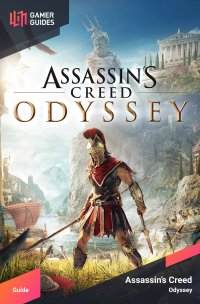The year is 431 BCE. The Peloponnesian War has just begun, a war fought between two main factions; Athens and Sparta. In this fictional take on the conflict, it would seem on the surface that each faction is vying for its own social, political and economic supremacy in the Greek world. This is soon revealed as a facade to a deeper conflict between the stability of Ancient Greece and the divisive cult of Kosmos, an organisation which seeks to seize power in the Aegean for its own grandiose and deranged purposes.
At the heart of this conflict are Alexios and Kassandra, siblings who belong to a family that was torn apart when they were children. Their stories are interchangeable, depending on which character you decide to play as at the beginning of the game. Being the grandchildren of Leonidas of Sparta, they are perceived as descendants of a powerful bloodline. The significance of their heritage marks them as targets of manipulation for the cult of Kosmos, and it is soon realised that their family was not subject to misfortune by chance.
With multiple stories unfolding alongside the events of war, it becomes the task of the player to uncover the key members of the cult of Kosmos and eliminate them, while at the same time attempting to reconcile a broken family or seek vengeance upon them, depending on the choices of the player. This guide intends to highlight pivotal moments in the story which will result in fundamental changes to its outcome, informing the player about the consequences of their choices and allowing them to orchestrate the eventual outcome without having to worry about what they might have missed.
Assassin’s Creed Odyssey continues the trend of the open world RPG introduced with Origins, whereby the gameplay is ever more open to the whims of direction that a player might take, and the combat mechanics are customisable through three main specifications; Warrior, Hunter and Assassin. This makes for an engaging experience with an impressive amount of content for the player to tackle in their own order and with their own style of play. That being said, there are a number of regions that should be avoided at specific points in the game, as they only scale with your level above a specific minimum level. This guide presents an ideal chronological order in which a player can experience the main content of the game without encountering regions that might prove too difficult at lower levels. It also highlights points of interest which will enable the player to maximise their development in terms of finding the most amount of ability points for the least amount of trouble, and by completing specific side quests in order to allow the player to move swiftly through the story.

 Sign up
Sign up
No Comments